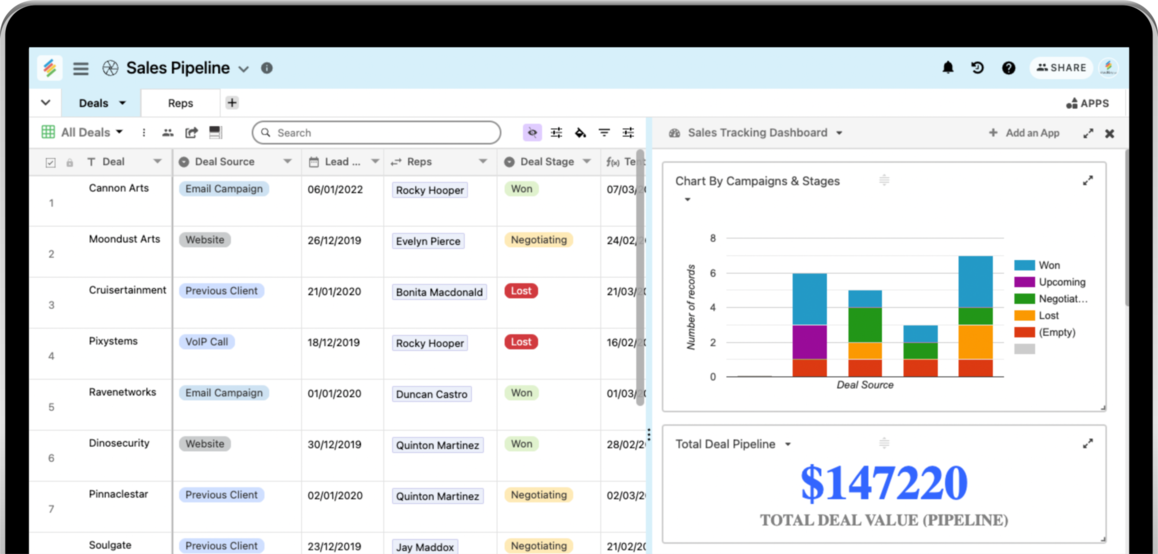Streamline Open System Database Creation with No-Code Growth Operatings Systems
Streamline Open System Database Creation with No-Code Growth Operatings Systems
Blog Article
Exploring the Benefits of Scalable Data Sources That Require No Coding Skills for Effective Information Administration Solutions
The introduction of scalable data sources that get rid of the need for coding skills provides a transformative possibility for companies looking for effective data administration options. As we think about the ramifications of such improvements, it comes to be critical to examine how they can reshape the landscape of data monitoring and drive lasting growth in an affordable setting.
Improved Ease Of Access for Users
Boosted availability for individuals is a crucial element of scalable databases, making sure that information monitoring systems are intuitive and user-friendly. In an era where data-driven choices are critical, ease of access permits a bigger variety of users, consisting of those without extensive technical competence, to involve with data source systems successfully. This democratization of data gain access to helps with improved partnership throughout divisions, encouraging staff members to make and remove insights educated decisions.
User-friendly interfaces, such as aesthetic data and drag-and-drop functions depiction, streamline complicated data communications. These enhancements lower the knowing curve connected with conventional database management, allowing customers to concentrate on leveraging data as opposed to grappling with technological intricacies. Scalable databases commonly include real-time analytics and personalized dashboards, providing individuals with prompt understandings customized to their certain needs.

Cost-Effectiveness and Source Savings
Effective data management not just depends upon accessibility however additionally on cost-effectiveness and resource financial savings. Scalable data sources made for customers without any coding skills dramatically minimize economic burdens typically connected with conventional database monitoring systems. By removing the demand for specialized shows know-how, organizations can designate their resources a lot more effectively, focusing funds on core company tasks rather than considerable training or working with proficient employees.
Additionally, these databases commonly utilize cloud-based solutions, which better minimize prices associated with hardware and upkeep. Organizations can scale their data source options according to their needs, staying clear of the expenses incurred from over-provisioning sources. This flexibility means organizations can adapt to altering demands without incurring unneeded prices, causing substantial long-term cost savings.
Furthermore, user-friendly interfaces improve information entry and management processes, decreasing the time invested in management tasks. This performance equates right into labor cost financial savings, permitting groups to focus on strategic initiatives as opposed to regular maintenance. On the whole, taking on scalable databases that require no coding abilities fosters a more affordable approach to data administration, making it possible for organizations to maximize their resources while keeping high degrees of operational efficiency.
Improved Collaboration Across Teams

Moreover, scalable data sources promote smooth interaction among employee. With user-friendly interfaces that need no coding skills, employees can easily create, customize, and share records or dashboards customized to their details needs. This democratization of information empowers non-technical users to contribute insights, improving the collaborative setting.
In addition, these databases support find this simultaneous access, enabling several users to work on the same dataset at the same time. This feature enhances efficiency, as teams can involve in joint data evaluation without the risk of version control problems. The capability to leave notes or comments straight within the database even more advertises discussion and makes clear data analyses.
Streamlined Data Management Processes
In today's data-driven atmosphere, companies recognize the requirement of streamlined information monitoring processes to maximize efficiency and accuracy. By leveraging scalable data sources that need no coding skills, companies can simplify their information handling and reduce the complexities commonly related to typical database systems. This ease of access empowers non-technical customers to involve straight with information, facilitating quicker decision-making and decreasing reliance on specialized IT workers.
Structured data administration procedures boost operations by automating routine tasks such as data access, validation, and coverage. Automated information combination makes sure that info from various resources is aggregated perfectly, getting rid of silos and cultivating a merged view of important company metrics (no-code). Moreover, straightforward user interfaces enable workers to control information easily, allowing them to generate insights that drive tactical efforts without the requirement for comprehensive training.
This performance not just accelerates operational procedures but likewise reduces the potential for human mistake, making sure that data stays exact and reputable. Ultimately, structured data management processes via scalable data sources cause enhanced performance, enabling companies to focus on core activities while making sure that their information administration methods are effective and effective.
Scalability for Expanding Organizations
For broadening enterprises, the capacity to scale up or down is essential. A scalable data source can handle an influx of data created from new clients, products, or services, ensuring that organization operations stay nonstop. Additionally, these data sources give the capacity to handle peak tons efficiently, which is go to my blog crucial throughout periods of rapid growth or seasonal spikes.
Additionally, lots of scalable database solutions are designed with straightforward user interfaces that require no coding skills, encouraging non-technical team to manage information effectively (no-code). This democratization of data monitoring allows companies to allot resources tactically and minimize dependence on specialized IT workers
Ultimately, embracing a scalable data source not just enhances operational efficiency however additionally promotes a setting where services can introduce and progress without the restrictions of standard database systems. This adaptability placements organizations for long-term success in today's affordable landscape.
Final Thought
In conclusion, scalable databases that need no coding skills supply significant advantages Full Article for efficient information administration. By simplifying data management procedures and offering scalability for expanding organizations, such options make it possible for organizations to adjust to transforming needs efficiently.
Enhanced access for users is an important aspect of scalable data sources, ensuring that data administration systems are instinctive and straightforward.Straightforward user interfaces, such as visual data and drag-and-drop functions representation, simplify complex data interactions. Generally, embracing scalable data sources that need no coding skills promotes an extra cost-effective method to information administration, enabling organizations to optimize their resources while keeping high levels of operational effectiveness.
By leveraging scalable databases that need no coding abilities, organizations can streamline their data handling and minimize the complexities usually linked with standard database systems - no-code.Structured information monitoring procedures enhance operations by automating regular jobs such as data entry, validation, and reporting
Report this page